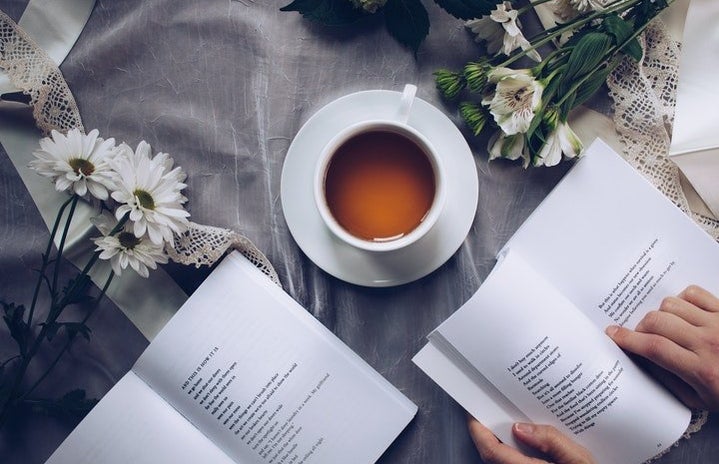In early March, many of us had to readjust to staying home at all times. Those of us who were used to the many distractions of life may have found it particularly difficult to find activities to do in our free time. Some took up puzzles or spent quality time with family. Most of the time, however, we were alone. Spending every single day with only ourselves has led to introspection and some much-needed self-reflection. We have had to answer questions such as: “What truly matters to me?” and “What are my needs and motivations in life?” Regardless of the pandemic, we’re currently living through, these questions have never been easy to answer.
While Rupi Kaur’s Homebody doesn’t necessarily answer these questions, it does encourage one to delve deeper into reflection. Rupi Kaur, long considered the “Instagram poet”, gained fame from her two previous collections of poetry: Milk and Honey and The Sun and Her Flowers. Through her open-form poetry, Kaur confronts her complicated bicultural identity, her immigration journey, and her coming to terms with her own trauma. While Homebody does address some of these topics, the focus of this particular book is on self-love and appreciating the home she already has within herself.
Homebody was published back in November 2020 which seems fitting considering many of us have quite literally become “homebodies.”
She writes, “I am loving myself out of the dark” (37). Personally, I have really applied this to my life these past few months whether it be writing in a journal or simply reflecting on my insecurities or learning to appreciate the person I am becoming. In fact, there’s a phrase I’ve learned to appreciate which is “pains of growing,” which you may have heard before. There is a reason it exists. Both growth and change are painful, but it is necessary for us to become the best versions of ourselves. Kaur puts these feelings into beautiful words, outlining the difficult journey but also appreciating the beautiful outcome.
Within Homebody, there are many titled poems that Kaur writes. One of my favorites is “Journey” where she writes about feeling lost in a confusing world but signifies that it is simply part of life. This year hasn’t been easy, and perhaps we don’t forgive ourselves enough for it. When the pandemic first began, I spent a considerable amount of time feeling guilty for my lack of productivity, and I’m sure others could relate as well.
She also addresses the problems with “hustle culture.” Our self worth is defined by our level of “work” which can lead to deep feelings of insecurity. We continue to seek more in our lives instead of appreciating how much we are already doing. Kaur writes “i get so lost in where i want to go i forget that the place i’m in is already quite magical” (108).
Homebody reminds us of the importance of gratitude and slowing down and finding where our home actually should be. Perhaps we have been looking in the wrong places. This holiday season, I hope that we can all take the time to unwind, forgive ourselves and find out what truly matters.
Let us know your thoughts on Rupi Kaur’s Homebody by tagging @HerCampusSJSU.



